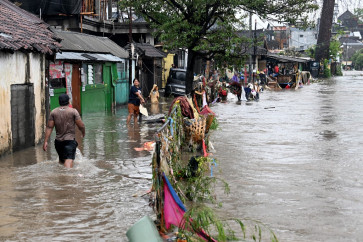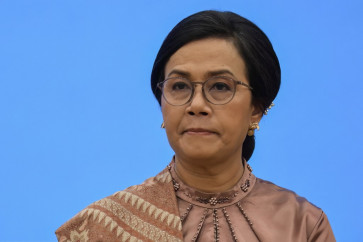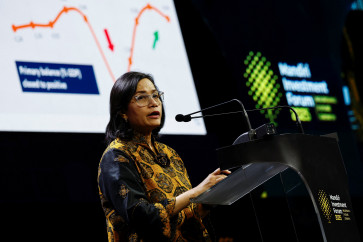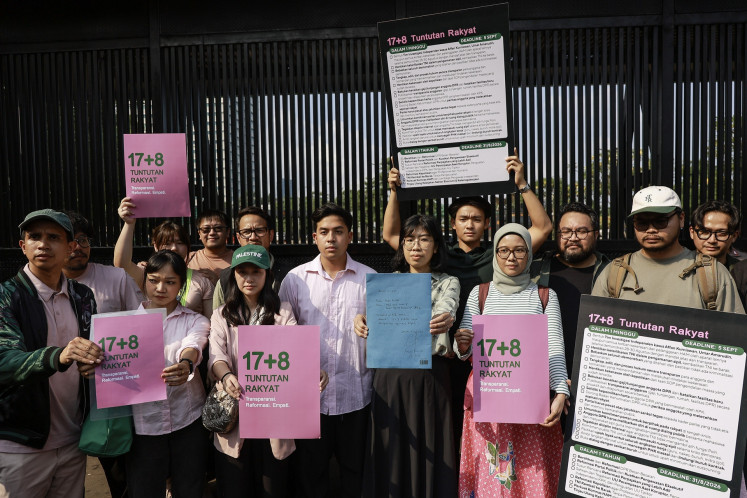Popular Reads
Top Results
Can't find what you're looking for?
View all search resultsPopular Reads
Top Results
Can't find what you're looking for?
View all search resultsNames of DSIB banks will not be published, says OJK
The Financial Services Authority (OJK) says that it will not publish the names of banks categorized as âdomestic systemically important banksâ (DSIB)
Change text size
Gift Premium Articles
to Anyone
The Financial Services Authority (OJK) says that it will not publish the names of banks categorized as 'domestic systemically important banks' (DSIB).
According to the OJK commissioner for banking supervision, Nelson Tampubolon, the financial regulator will only announce the DSIB criteria, without revealing the names of the banks.
'It will be in line with the standards set by the BIS [Bank for International Settlements, an international organization of central banks], but we will not publish the names for the sake of some depositors,' he said on Thursday.
He said that depositors whose funds are being kept at non-domestic systemically important banks might falsely interpret the list by thinking that only DSIB would get assistance should a financial crisis occur.
The DSIB is a term used to describe banks whose business failures may widely impact the economy. These 'too big to fail' banks are usually those that have broad business networks and operate numerous subsidiaries in various financial sectors.
The Basel Committee ' an association of banking supervisory authorities ' has laid out four criteria to determine whether a local bank can be categorized as a DSIB.
The criteria revolve around size, interconnectedness, substitutability and complexity. According to the committee, the size will determine to what extent a bank's failure would damage the economy or financial markets.
Interconnectedness, on the other hand, refers to how distress at one financial institution can materially raise the likelihood of distress at other financial institutions.
The committee stipulates that under substitutability, the systemic impact of a bank's failure is expected to negatively relate to its degree of substitutability, both as a market participant and client service-provider.
Lastly, complexity will show that the more complex a bank is, the greater are the costs and time needed to save the bank.
Nelson said that the OJK was still coordinating with Bank Indonesia (BI) to determine which banks should be regarded as DSIB and that it would complete the list soon. For now, the temporary list consists of dozens of banks.
As a group, the DSIB also makes up for a significant topic within the formulation of the Financial System Safety Net (JPSK) bill.
'People may already know the banks that qualify as a DSIB without me naming names. Foreign branches whose headquarters are already regarded as GSIB [global systemically important banks] will automatically be registered on our list as well,' he said.
Last year, the Basel Committee and the Financial Stability Board (FSB) updated its global list, bringing the number of GSIB to 30. It contains global names, such as HSBC, Citibank, Standard Chartered and Deutsche Bank, all of which run branches in Indonesia.
Meanwhile, once the DSIB list is completed, the banks will then be subjected to tighter supervision and control.
The prompt issuance of the DSIB list by the OJK also becomes important because the banks will face higher capital requirements under the Basel III regulation, which will be implemented starting 2016.
An additional 2 percent capital ratio will be imposed on the DSIB.
However, contrary to the OJK, BI governor Agus Martowardojo said that the names of the DSIB should be made public to ensure transparency and awareness.
According to Agus, the announcement will serve as a tool to demand higher responsibility from the banks' owners. 'They must do what it takes to comply with the requirements as DSIB,' he said.
______________________
'People may already know the banks that qualify as a DSIB without me naming names'.










